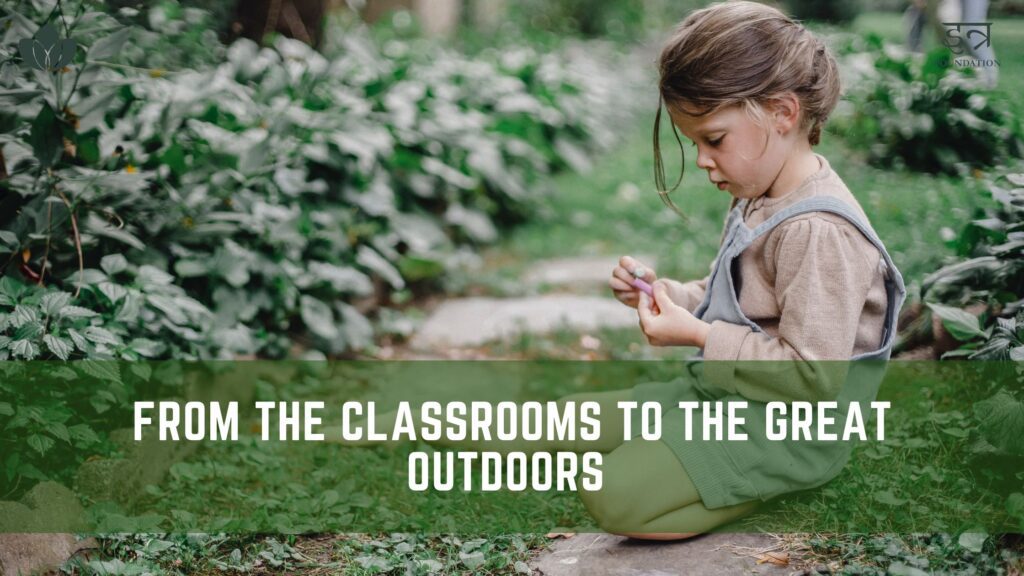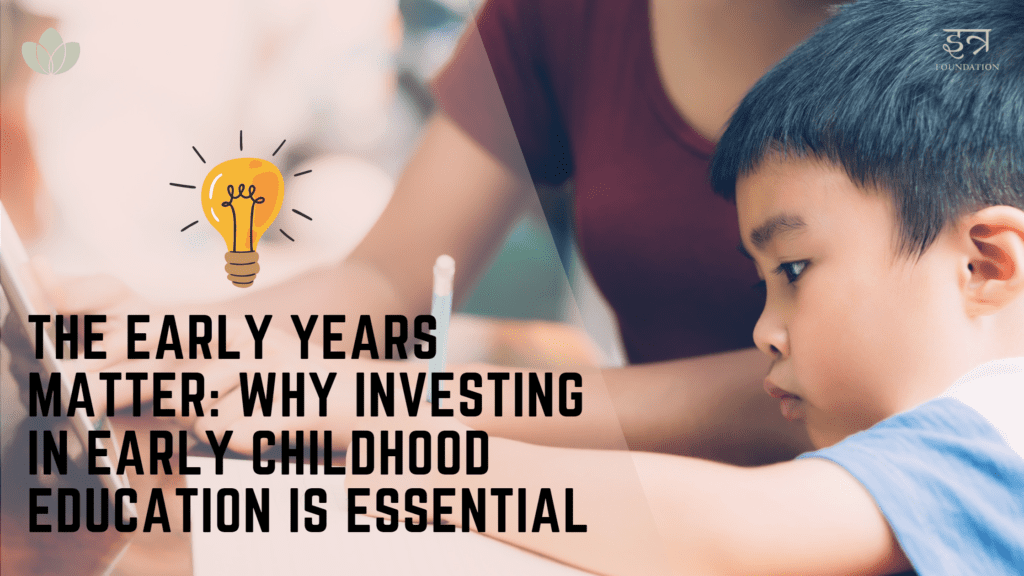Early Childhood Education (ECE) term is used for teaching young kids. More specifically, it refers to educational programs that guide the growth and development of children throughout their preschool years (birth to age 5). Since, kids at these ages are entirely dependent on adults (parents, caregivers, teachers etc), it becomes important for adults to expose/engage them to exercises that include various developmental domains of ECE which are as follows:
- Communication Development. …
- Physical Development. …
- Cognitive Development. …
- Social-Emotional Development. …
- Adaptive & Imaginative Development.
Young children learn best through play, and starting early sets them up for success in life and school. In fact, children start learning from their parents and environment in utero.
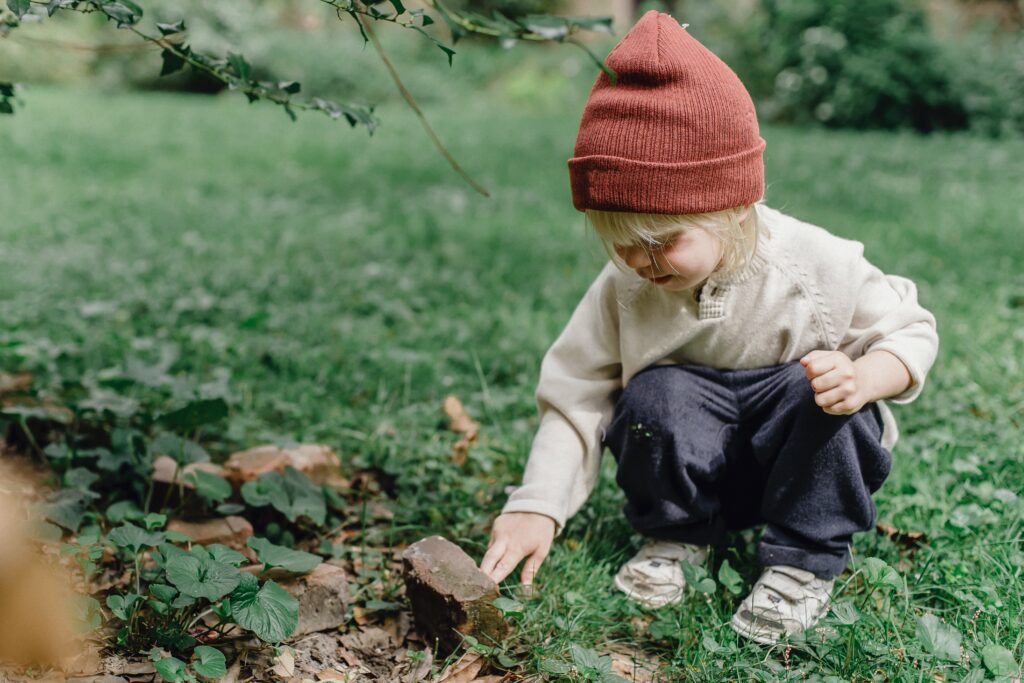
This Might Interest Interest You: The Pros and Cons of Plucking Flowers
Covering all above domains, ECE curriculums includes indoor or outdoor play, cooperative or individual play, domestic play, sensory play and constructive play, etc.
Even though it’s the digital age, and we have many extraordinary advantages of having access to digital resources, which has become indispensable part of our lives, but children’s growth surrounded with gadgets has proved to limit their growth. Furthermore, good “old-fashioned” outdoor play has proved essential for healthy development in children’s early years. Being active outside provides these little ones with valuable experiences that can directly impact their physical development, social skills, creativity, intelligence and their immune system. Hence, adults should encourage and give unrestricted time to kids for outdoor plays as thats another essential platform for their growth.
In addition, outdoor plays and activities involves kids to be in an open environment where they can connect to the nature and use their sensory skills to feel and touch the plants, soil etc. which is therapeutic. In fact, research studies show that nature increases youth creativity, reduces stress, and helps kids who suffer from attention-deficit disorder(ADD).
In his award-winning book, Last Child in the Woods: Saving Our Children from Nature-Deficit Disorder, Richard Louv delves into the benefits of nature for children. He links the lack of nature in the lives of today’s wired generation to troubling childhood trends, including the rise of obesity and depression. On the other hand, children spending time in nature develop critical thinking skills as they learn to make inferences and draw conclusions. They learn by tasting, touching, and seeing wildlife and flora in ways they could not learn from a book. Bringing children and nature together helps teach respect for the planet and the ways we are inextricably connected.
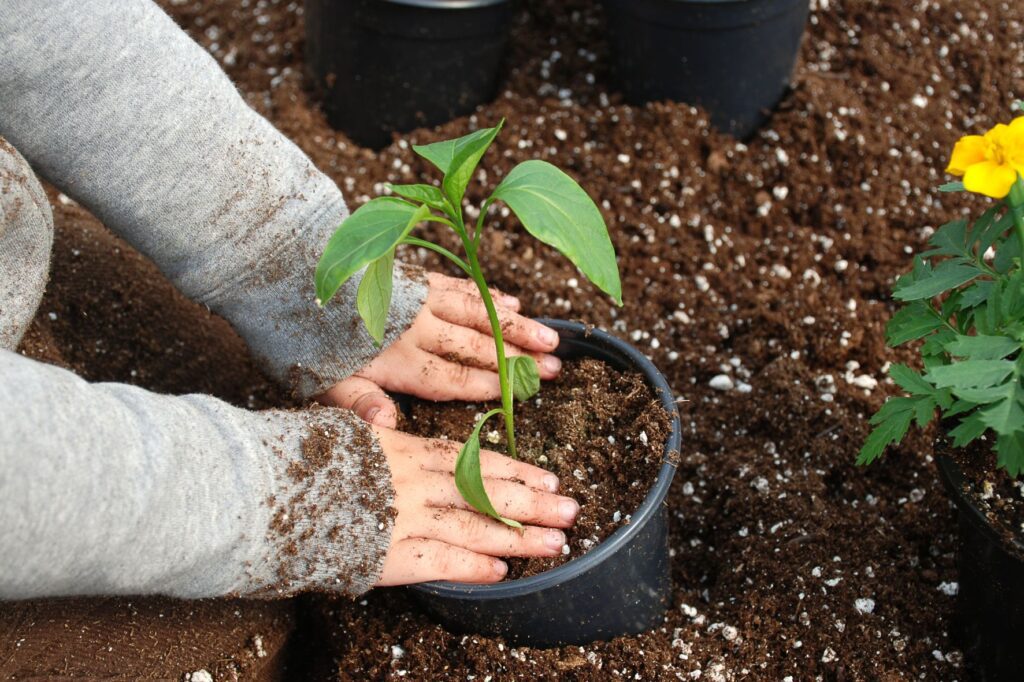
When kids are out in nature, they see the beauty just as we do, and they start interacting with it. They jump in puddles, climb on rocks, swing from trees, and pick things up. Children begin to wonder in nature. Natural materials such as pine cones, grass, rocks, leaves, rain, spider webs, sticks, frogs, fossils, dirt, seashells, pebbles, and sand provide endless possibilities for play and imagination. They come up with ideas of how to use these natural materials. What are they? What can they do? How do they feel? What do they look like? How does it move? How does it grow? What can they do with this? Nature provokes children into thought, action, and formulating their own ideas.
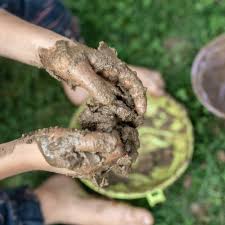
Richard Louv also suggested activities that will help kids get involved with nature, which we at Itra foundation are facilitating too, through our various nature connecting events with kids :
- Encourage kids to camp in the backyard.
- Build a backyard weather station.
- Make a “green hour” a new family tradition, giving children time for unstructured play in the natural world.
- Invent a nature game on a hike in the country.
- Build a tree house with your kids.
- Plant a garden.
- Raise butterflies.
- Maintain a bird bath or a bird feeder
We adults hold an an important role in our child’s development and hence we should help children by providing natural environments to explore and add tools to enhance explorations, such as shovels, magnifying glasses, pencils and paper, cameras, and related resources. It is important to observe where and what the children are interested in and support those interests by asking open-ended questions like “What did you discover?” “How does it feel?” Etc. Itra foundation has a mission to give children this platform to connect with nature frequently through various ways like Nature walks, nature activities (soil doodling, plant a tree, play nature games, green hour event and may more)
When children connect with nature and freely explore its components, they develop their own personal relationship with nature, which helps their understanding of nature. Children need consistent contact with nature and ample time to explore and become familiar. Nature inspires physical challenges: climbing over a rock, walking up a hill, rolling down a hill, swinging from a branch, running freely, or scooping and digging dirt. With the rise of childhood obesity, nature is a positive encourager to physical well-being.
While nature provides its open space for kids to run and jump, at the same time, it also helps them slow down and become observant of things around them. Nature provides them with a sense of calm and visual images of beauty. Children use their senses, such as listening to leaves in the wind, or looking at spiders’ fancily woven webs, or hearing the call of a bird.
Adults should provide children opportunities to care for nature, such as watering plants, feeding animals, picking up trash, and treating “creatures” gently, supports a sense of respecting nature and developing empathy.
Some early educators use many components of nature in their indoor environments. Loose materials, such as pinecones, stones, seashells, leaves, and twigs, are displayed in baskets for children’s imaginations to provide an idea. Nature’s artifacts, such as feathers, a bug’s shell, fossils, or a bird’s nest, are used for exploring. Bringing nature to the classroom reinforces its beauty, purpose, and gifts. Open the door to the outside and support wonderful connections with nature!
To conclude, Itra Foundation emphasizes that every child deserves to experience, through the magic of play, the beauty, wonder, and enormity of the natural world and connect to something bigger than themselves which will help them become physically, mentally and emotionally strong human being.
Invest time in kids and connect them to nature, be part of Itra!


